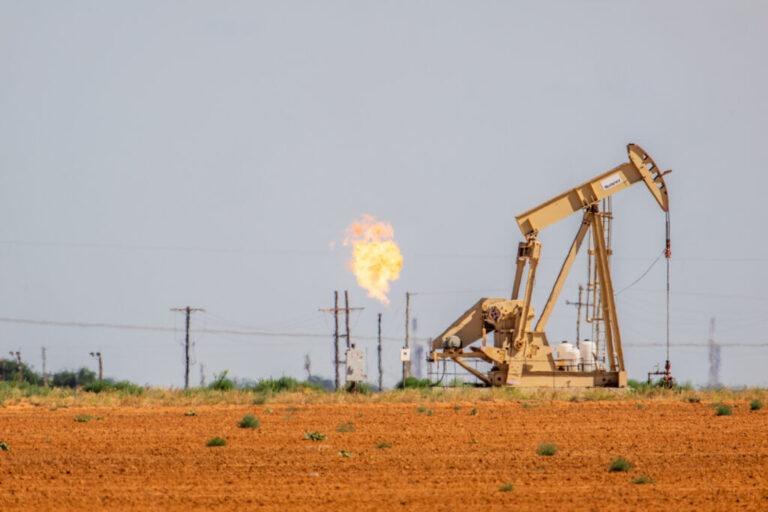Indirect emissions from a company’s financial investments can be tricky to measure, but a new study is putting a number on a hidden carbon footprint in the oil and gas sector.
Using satellite technology to analyze oil fields, Clarity AI and Climate TRACE found that a sample portfolio containing the world’s top 20 oil and gas companies would have a 24 percent higher carbon footprint when accounting for investment-related emissions.
When it comes to measurement and disclosure, not all greenhouse gas emissions are created equal. For companies looking to assess their impact on climate change, some things are easier to track, such as the electricity they use to light up offices or the gas fueling their trucks.
But emissions that aren’t part of a company’s day-to-day operations still represent a significant part of the equation, said Patricia Pina, head of product research and innovation at Clarity AI, a climate tech company that provides environmental data to investors. For the report, her team focused on the complex ownership structure of investments in the fossil fuel industry, particularly the way companies run and operate oil and gas fields.
According to the Environmental Defense Fund, an advocacy group, a majority of oil and gas projects in the world are joint ventures: multiple companies coming together to invest in a project. While all companies in the partnership provide money to fund the extraction, only one has to claim it as its own. The other companies involved may own a majority of the project but can categorize it as a mere investment.
The report found that 90 percent of the world’s largest oil companies do not currently report emissions from these partnerships or joint investments as their own.
The climate impact of a company’s investments falls under what are commonly called Scope 3 emissions. These are the greenhouse gases released throughout a company’s entire value chain, from suppliers to customers. Last year, corporations reported that their Scope 3 emissions were on average 26 times greater than their direct ones, a report by the Boston Consulting Group showed.
Fossil fuel companies have long sought to distance themselves from Scope 3 emissions and shift the blame for climate impacts to end users. ExxonMobil, which declined to comment on the new study, said in its 2024 climate solutions report that suppliers should not be held accountable for their customers’ emissions or it would undermine incentives to take action. “When everybody is responsible, nobody is responsible,” the report reads.
“Blaming the producers of oil and gas for climate change is like blaming farmers for obesity,” Majid Jafar, CEO of the UAE-based Crescent Petroleum, told CNBC in an interview last year.
Asked about the study, American Petroleum Institute spokesperson Scott Lauermann said in…
Read More: Not All Companies Disclose Emissions From Their Investments, and That’s a




